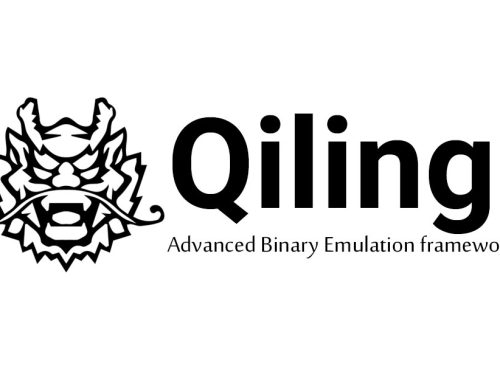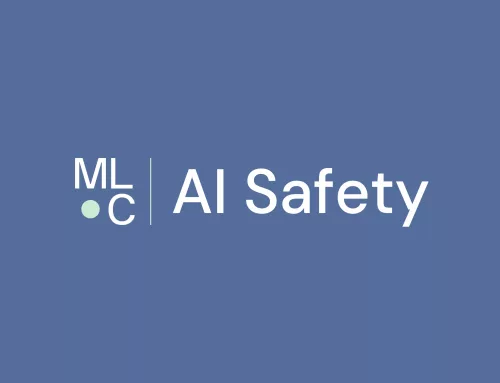The AI Safety Summit 2023, a seminal event hosted by the UK Prime Minister at the historic Bletchley Park, marked a pivotal moment in the evolution of the security of Artificial Intelligence. This assembly of international leaders, AI pioneers, and research experts highlighted a collective commitment to navigating the complicated challenges of AI safety. As AI systems improve rapidly, ensuring their safe and responsible development has become the number one priority of many governments.

This article offers an overview of the summit’s proceedings. We stand at a crossroads where the promise of AI’s capabilities is as limitless as the potential risks, making the insights from this summit not just timely but critical for steering the future of technological innovation safely and ethically.
Summit’s Objectives
The gathering served as a platform to foster a deeper understanding of the challenges that arise as AI systems grow in sophistication. This understanding is pivotal, as it guides the strategies we adopt to ensure these systems serve our interests without unintended consequences.
The central theme of the summit was the urgent call for international collaboration. The complexity of AI security demands a global response and partnership. Researchers around the world understand that what happens with AI affects everyone, and keeping things safe online is important for all of us.
The summit also took a hard look at the organizational level, discussing how entities can integrate safety measures into their operational systems. It’s about creating a culture where safety is the focus of AI development, establishing a set of best practices that can guide industries across the board.
Moreover, the event underscored the need for a collaborative approach to research and governance in AI. It pointed towards a future where research efforts are coordinated to evaluate AI model capabilities and where new standards of governance are developed. These standards are expected to act as a guide for ensuring that AI systems adhere to safety and ethical norms.
The summit showed us how AI can be a good thing for everyone. It wasn’t just about being careful; it was also about the chances we have to use AI to make the world a better place. We saw examples of how being safe with AI lets us use it to help people and move forward. Through these discussions, the summit laid down a groundwork for the future of AI security calling for a collaborative and proactive approach to navigating the AI landscape.
AI Governance
In the core of the discussions at the AI Safety Summit 2023, it’s important to recognize that governance within the AI landscape is not a static set of regulations, but a dynamic process that evolves alongside the very technology it aims to regulate. The summit’s focus on governance was a testament to the collective understanding that as AI systems grow in complexity and capability, the frameworks that govern them must also advance.
Leaders from various sectors discussed the importance of developing new standards that could effectively support the governance of frontier AI technologies. These standards aim to be more than just guidelines; they are envisioned as the scaffolding for AI’s future, ensuring that as AI’s applications broaden, they continue to adhere to safety and ethical considerations. The summit’s message was clear: governance should not be an afterthought in the development of AI but an integral part of the innovation process.
By involving international governments and leading AI companies, the summit aimed to harmonize efforts across borders, highlighting the universal nature of AI’s impact. The collaborative effort required to develop these new governance standards is as much about ensuring AI’s safe development as it is about fostering an environment where AI can be used for the greater global good.
:quality(70)/cloudfront-eu-central-1.images.arcpublishing.com/thenational/YBP4UO4FK275ZQOQFKTPLJHYCY.jpg?resize=624%2C416&ssl=1)
Michelle Donelan (front centre), UK Secretary of State for Science, Innovation and Technology, with international digital ministers.
The AI Safety Institute, launched by the UK government, positions the nation at the forefront of AI safety research and governance. The institute is dedicated to examining the safety of emergent AI technologies, both before and following their release. Its tasks are to scrutinize the wide spectrum of risks associated with AI, from social issues like bias to extreme scenarios of AI autonomy. By partnering with eminent AI entities such as the US AI Safety Institute and the Alan Turing Institute, the UK’s initiative for AI safety is a significant step towards global collaboration in managing the advancements of AI technology.
In essence, the summit recognized that the road to responsible AI use is paved with shared understanding and joint action. The envisioned governance frameworks are expected to serve as a beacon for AI development, steering it towards a future where safety and societal benefit go hand in hand. This commitment to governance reflects a broader recognition of the transformative power of AI and the responsibility that comes with it. The summit’s discussion marked an important step forward, not just in envisioning a safer AI future but in laying down the actionable pathways to achieve it.
UK’s Future in AI
During the AI Safety Summit, Matt Clifford, the Prime Minister’s representative, spoke about the future of AI, emphasizing its swift evolution and the pressing need for a global conversation on the safety of emerging AI models. Clifford highlighted the UK’s significant investments in AI, particularly in healthcare, where AI technologies are being leveraged to swiftly diagnose and treat life-threatening conditions like cancer, strokes, and heart diseases. AI’s predictive capabilities are being tuned to assess health risks and explore novel treatments for chronic ailments.
:quality(70)/cloudfront-eu-central-1.images.arcpublishing.com/thenational/2TBIQXBSNG67OVYPXK5OPL2KDY.jpg?resize=599%2C399&ssl=1)
Prime Minister Rishi Sunak speaks with President of the European Commission, Ursula von der Leyen.
Moreover, Clifford acknowledged AI’s role in environmental sustainability, where it aids industries in reducing carbon footprints and enhances the efficiency of renewable energy sources. In the educational sphere, AI is reshaping learning experiences by personalizing education and assisting teachers in managing their workload more efficiently. This paints a picture of a future where AI is deeply integrated into our daily lives, driving innovation while simultaneously requiring rigorous safety measures to ensure its benefits are fully and safely harnessed.
Conclusion
International leaders and experts are dedicated to ensuring the secure advancement of AI technologies. The consensus reached at Bletchley Park, underpinned by the Bletchley Declaration, reflects a growing awareness of the convoluted balance between harnessing AI’s benefits and mitigating its risks. The commitment to rigorous testing protocols and the pursuit of a detailed ‘State of the Science’ Report are indicative of a proactive approach to AI safety. This summit has set a precedent for global cooperation, with the UK’s initiative promising to catalyse further action and dialogue in the international arena. The dedication to revisiting and refining AI safety measures in future summits is a testament to the dynamic and evolving nature of AI governance. This event marks a pivotal moment in our collective journey toward a secure and beneficial AI future.
The key takeaways from this event are:
- The historic convergence at the summit aimed to chart the course for the safe evolution of frontier AI.
- The unanimous adoption of the Bletchley Declaration on AI safety marked a collective commitment to understanding AI’s potential and risks.
- Support was pledged for the creation of a comprehensive ‘State of the Science’ Report, spearheaded by the renowned scientist Yoshua Bengio.
- A consensus emerged on the necessity for state-led trials of upcoming AI models in collaboration with AI Safety Institutes.
- A resolve to deliberate on more progressive AI safety policies in future summits hosted by South Korea and France.
- The UK’s dedication to advancing the Summit’s outcomes.




